How Delta Air Lines uses predictive and generative AI to cut delays, guide travelers, and make support proactive.
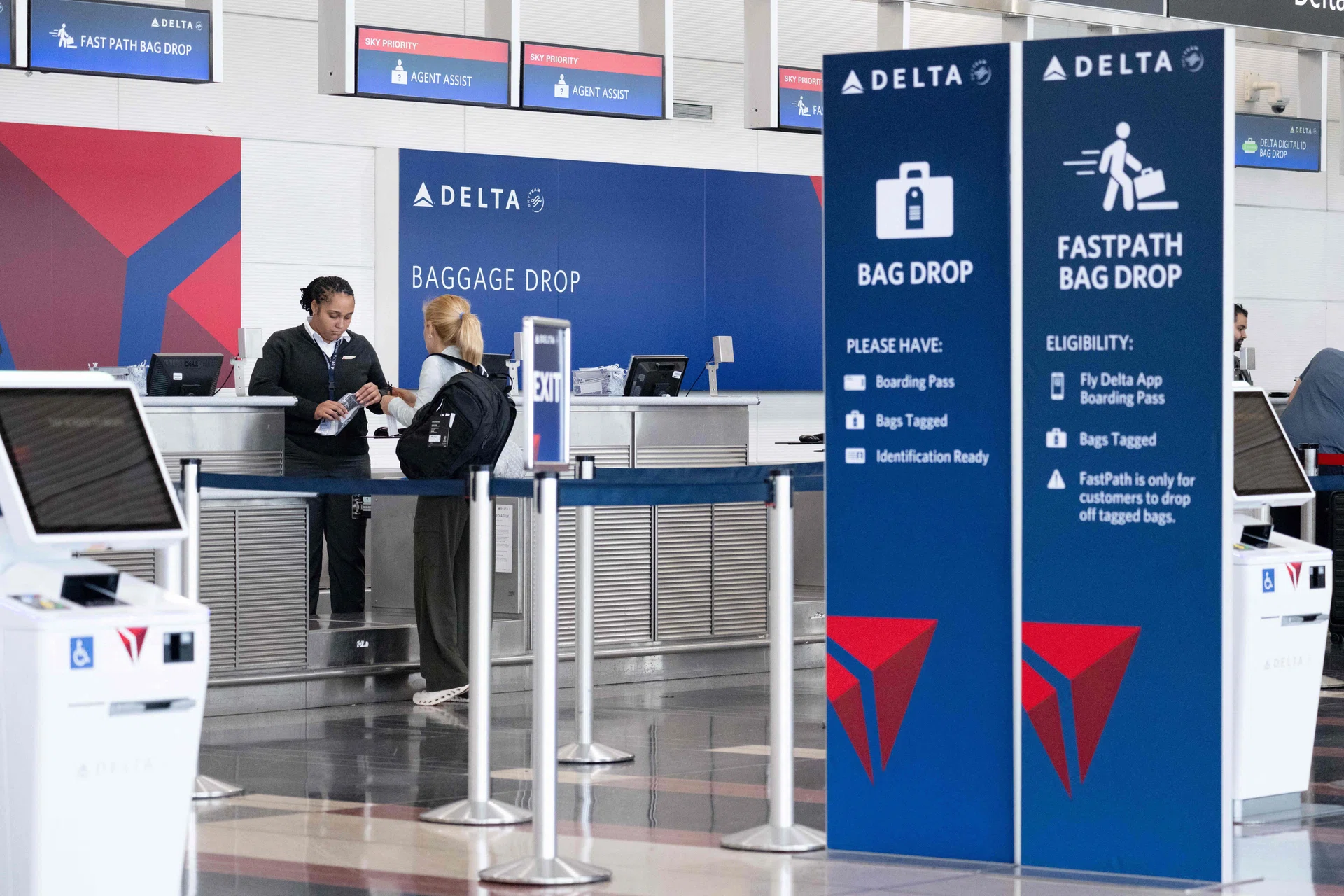
Delta Air Lines is not just using AI, it’s using it to build a "digital thread." This thread links every step of your trip—from booking to baggage claim—to make travel smoother. For Delta, better customer service starts with fewer problems, not just fixing them faster. This strategic shift uses Artificial Intelligence (AI) in Delta Air Lines ' customer service to enhance operational efficiency, resulting in the most effective form of customer support.
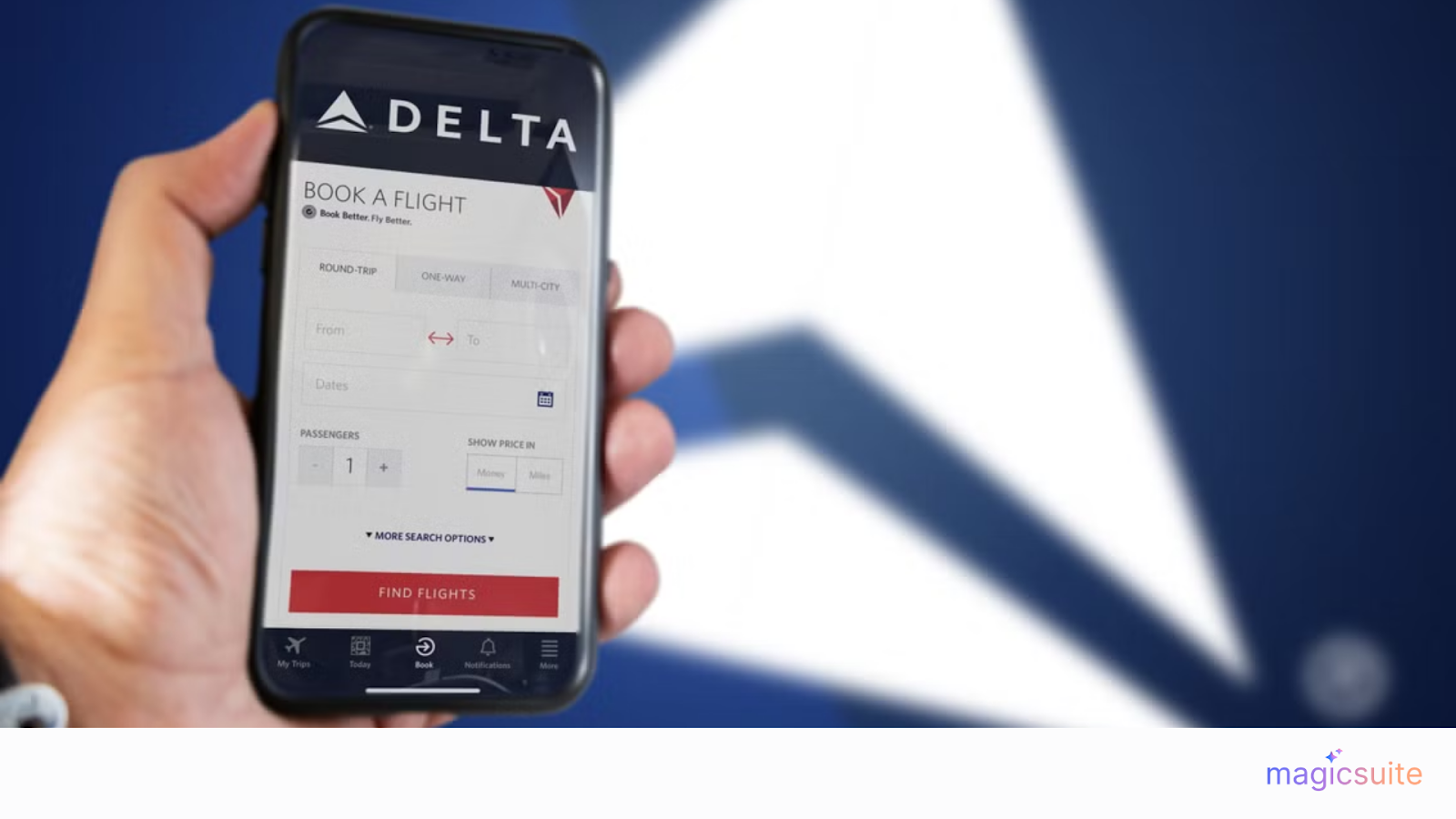
Delta Air Lines is one of the world's largest and oldest major airlines, consistently ranked among the most reliable global carriers. Operating a vast network that spans continents and serves millions of passengers annually, Delta's scale and commitment to a premium travel experience make operational resilience a critical business priority.
Delta has strategically adopted Artificial Intelligence (AI) not merely to cut costs, but primarily to transform customer service from a reactive function into a proactive customer service.
For an airline, the most significant customer complaint is disruption—encompassing delays, cancellations, and lost luggage. Delta aims to solve the most pressing issues before they impact travelers using predictive and generative AI across its operations
Delta customer service is moving from reactive customer service (answering questions) to proactive guidance (anticipating needs).

Launching in early 2025, the Delta Concierge in the Fly Delta app is a GenAI assistant. It’s not a simple chatbot; it’s designed to think ahead.
Anticipatory Support Examples:
Delta also helps its Reservations Specialists. They now use an AI-integrated knowledge tool that works like a co-pilot. This helps agents find answers to complex questions faster and makes sure every customer gets the same, high-quality information.
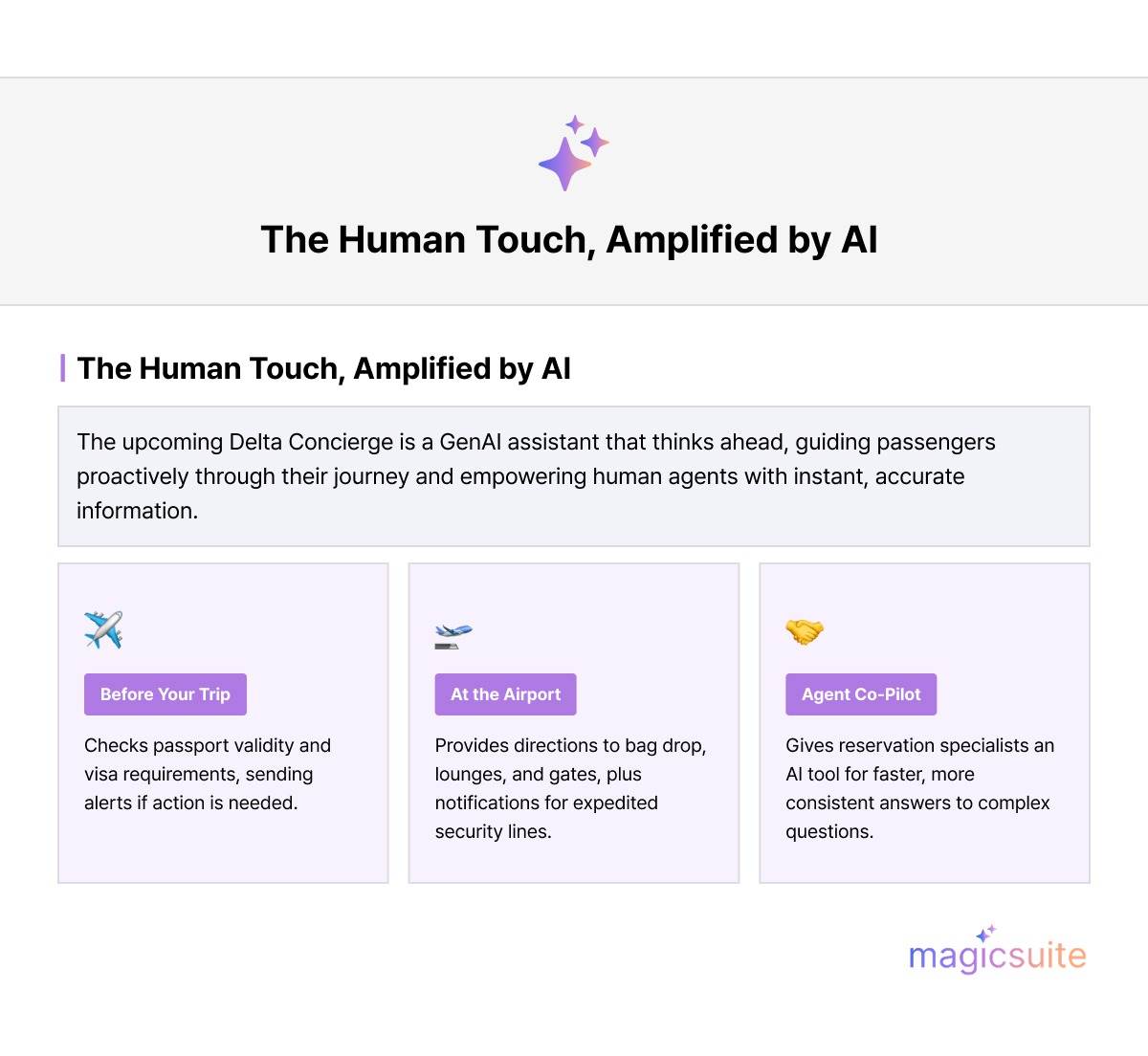
Pre-Trip Planning
Airport Wayfinding
Agent Support
Also read: Conversational vs. Traditional Customer Service: Pros and Cons
Delta believes that minimizing flight problems is the best form of customer support. This is where predictive AI really shines.
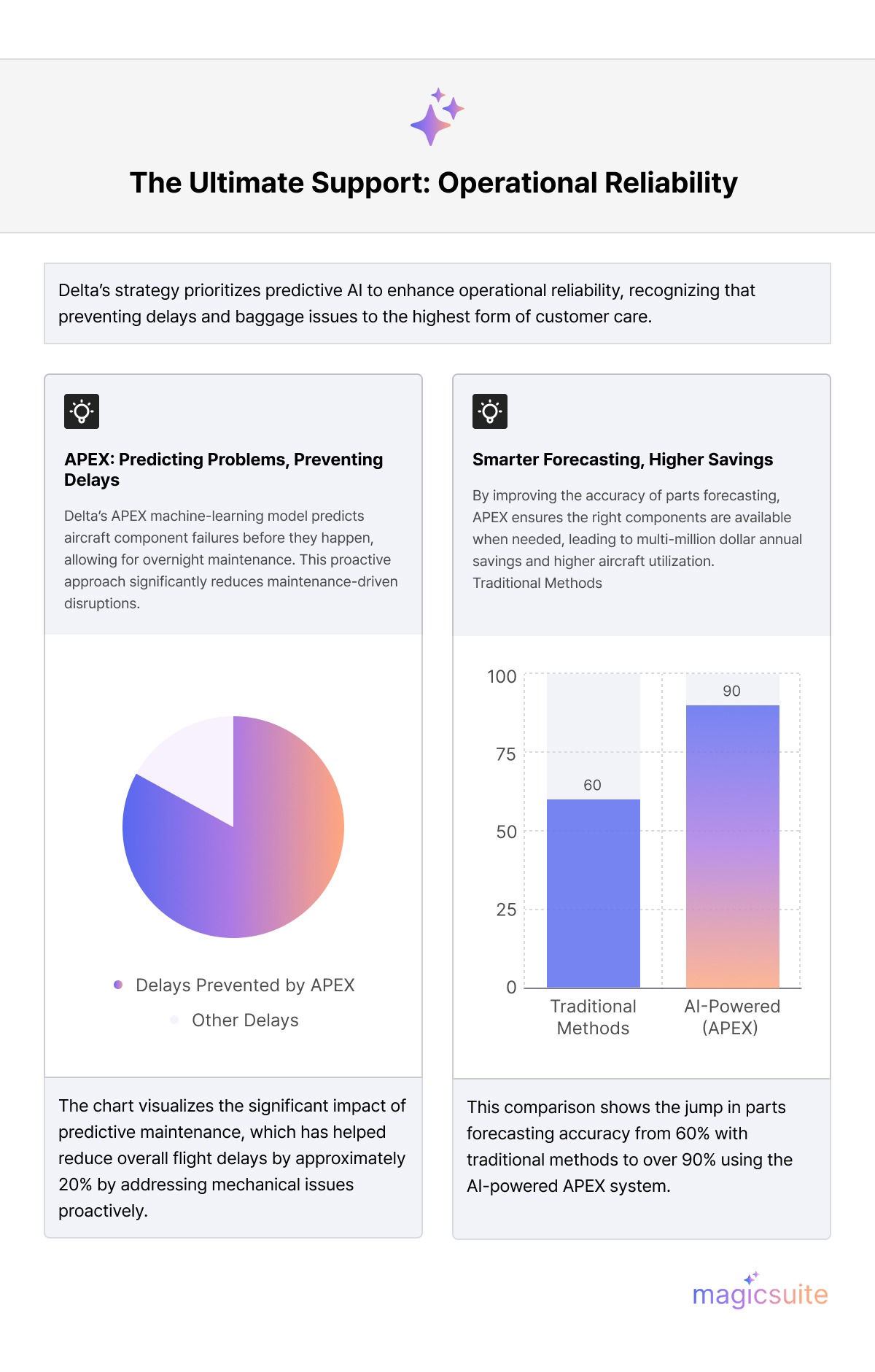
Delta Air Lines’ TechOps utilizes machine-learning models (APEX) to predict component failures and schedule fixes overnight, rather than on the ramp—the result: fewer AOG events and significantly fewer maintenance-driven delays (≈approximately 20% reduction). Beyond punctuality, this yields measurable cost savings (multi-million dollars annually; add source) and higher aircraft utilization—arguably the highest form of customer support, as the “support ticket” (a delay) never occurs.
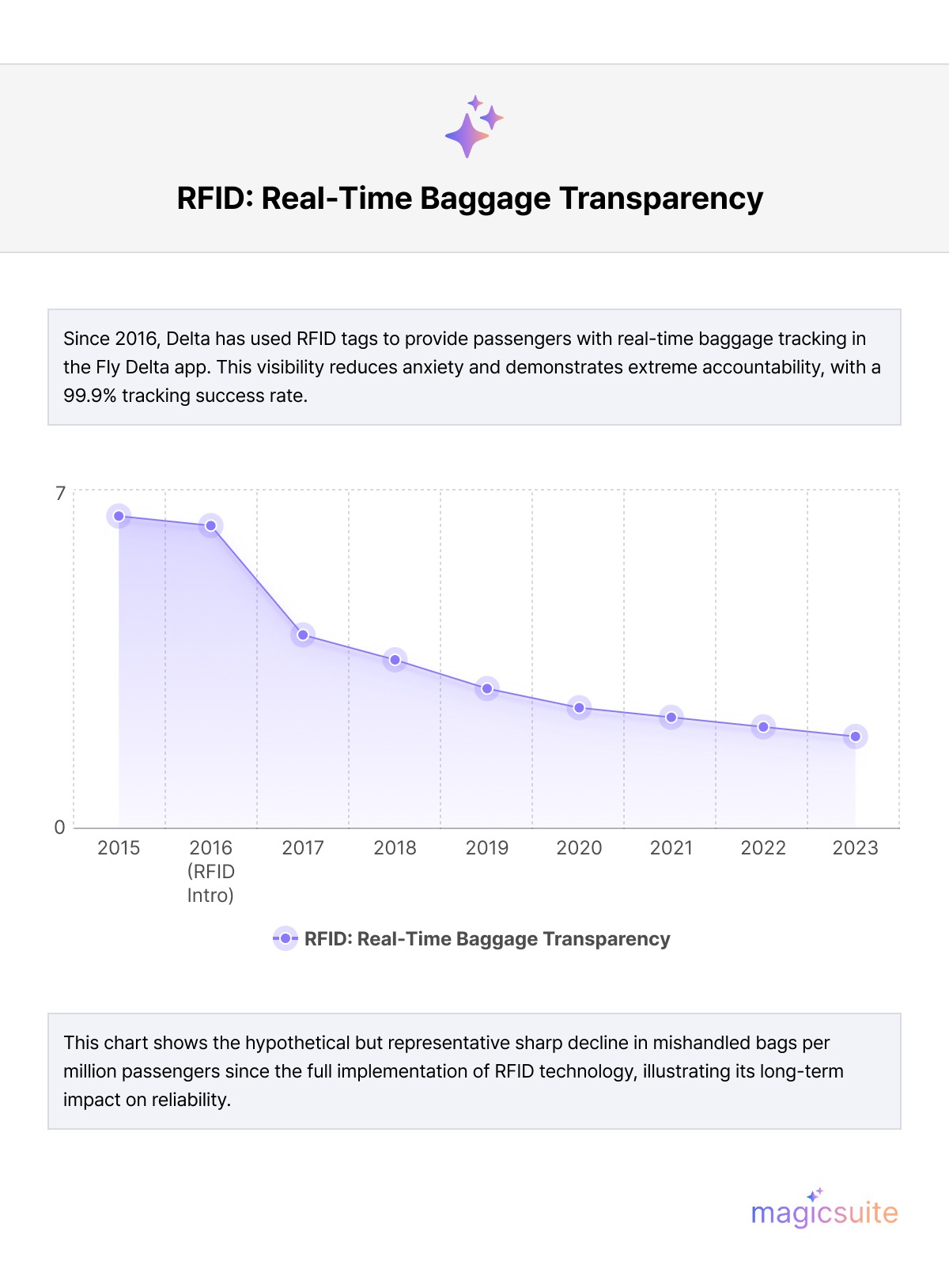
With RFID tags and end-to-end scanning, Delta shows real-time bag progress in the Fly Delta app. That visibility reduces anxiety and drives accountability. Track rates and delivery success routinely exceed 99% for tagged bags. The same data stream improves exception handling: when bags misconnect, agents and systems can re-route proactively.
Delta utilizes AI for commercial intelligence, such as setting fare prices, to fund these operational improvements. This has raised concerns about "personalized pricing" based on what a person is willing to pay.
Delta's official line is clear: Prices are not targeted to individuals. Fares are determined using objective, aggregated factors such as overall market demand, competitor prices, and route costs. All prices are publicly filed multiple times daily. The challenge is ensuring the public trusts the difference between optimized pricing (using market data) and personalized pricing (using private consumer profiles).
Delta's AI strategy is rooted in making its operations structurally reliable first. While other airlines focus on quick wins, such as AI chatbots, Delta addressed the more complicated problems—delays and baggage. It combines a strong cloud foundation with deep predictive AI in maintenance and logistics. Delta created a high-value customer service model. The future is an expanding digital thread and the Delta Concierge, which will soon manage your entire end-to-end trip, making travel truly seamless.

Luke is a technical market researcher with a deep passion for analyzing emerging technologies and their market impact. With a keen eye for data and trends, Luke provides valuable insights that help shape strategic decisions and product innovations. His expertise lies in evaluating industry developments and uncovering key opportunities in the ever-evolving tech landscape.